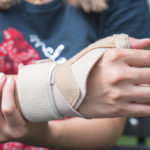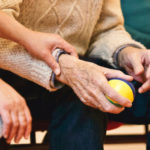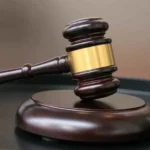Blog – Page 52
Feb 27, 2018 by

Before a trial, there are many instances of communication that occur between the injured party and the defendant’s auto insurer. Sometimes a defendant’s insurer will offer to provide the Personal Injury Protection (PIP) Benefits or an amount within the policy limits early in the negotiating phase of the process. These settlement agreements often come with language requiring the party accepting funds to waive their right to pursue a civil action ... [Read More]
Feb 19, 2018 by

A Florida personal injury judgment against an aesthetician and a spa was recently upheld by the Fourth District Court of Appeal. In Case No. 4D16-2530, a woman was injured after a facial at a spa went very wrong. The injured customer filled out a form advising she had the skin condition rosacea, which is a chronic inflammation of the face. Prior to the treatment at the spa, the condition was ... [Read More]
Feb 12, 2018 by

When you file a Florida wrongful death action, the allegations themselves must meet certain criteria set by statutes and case law. The defending party must have notice of the allegations against them in order to appropriately prepare a defense for themselves. The allegations are all written in a complaint, which is filed with the civil court that has jurisdiction over the matter. These complaints must dictate a cause of action ... [Read More]
Feb 5, 2018 by

In Florida, an injured car accident victim can only recover future medical expenses if the care and cost are “reasonably certain” to be incurred. This is accomplished by meeting her burden to provide the fact finder with competent, substantial evidence that future medical expenses are more likely than not to be incurred. An injured party often uses treating physicians and medical administrative staff to relate the need for care and ... [Read More]
Jan 24, 2018 by

Personal injury litigation involves a lot of strategic anticipation. Even if a plaintiff is successful at trial, a defendant can ask for an adjustment, arguing the evidence did not support the amount of of damages awarded to the injured person. A Florida District Court of Appeal recently assessed a trial court’s refusal to grant remittitur for a jury verdict awarding $100,000 for future medical expenses in an underinsured motorist (UM) ... [Read More]
Jan 17, 2018 by

Expert witnesses help the finders of fact understand complex concepts in a personal injury action. In order to successfully be awarded damages, an injured person must connect the injury to the requested amount. An expert must be qualified to testify as a matter of law, and they may also be scrutinized by the jury and the court. Verdicts can be set aside if a judge concludes a jury could not ... [Read More]
Jan 10, 2018 by

Many legal discussions about time and deadlines in a personal injury action revolve around filing or answering something too late. Sometimes, an action can be filed too early. If a claim is added too early or too late, the litigation can either be dismissed or derailed. This is seen in a recent car accident case from the Third District Court of Appeal (No. 3D17-1086), which determined a third-party bad-faith action ... [Read More]
Jan 3, 2018 by

In a slip and fall case, the location of the accident often determines which venue is appropriate for a civil action. Sometimes if one files suit against a business, the injured person may choose to file suit in the state where the corporation’s headquarters are located. In an appellate decision out of the Third District Court of Appeal, the court reviewed whether or not the state court system was an ... [Read More]
Court of Appeal Reinstates Verdict for Insurance Company in Florida Uninsured Motorist Coverage Case
Dec 26, 2017 by

When serious injuries are litigated in a car accident case, the injured party must show the jury the connection between the injury suffered and the accident. The injured person must also demonstrate the types of care needed to treat the long-lasting effects of the injury, along with the associated costs. This is often accomplished through the testimony of expert witnesses. The Fifth District recently assessed the testimony of experts in ... [Read More]
Dec 19, 2017 by

Florida car accidents are often caused by poor choices made by other drivers or bad weather conditions. Occasionally, they are caused by hazards created by construction zones or the design of a roadway. The Third District Court of Appeal recently issued an opinion in a negligence action filed against a gas station. The plaintiff alleged a cut across a median requested and promoted by the gas station caused the errant ... [Read More]

 Call Us Today
- It's Free
Call Us Today
- It's Free